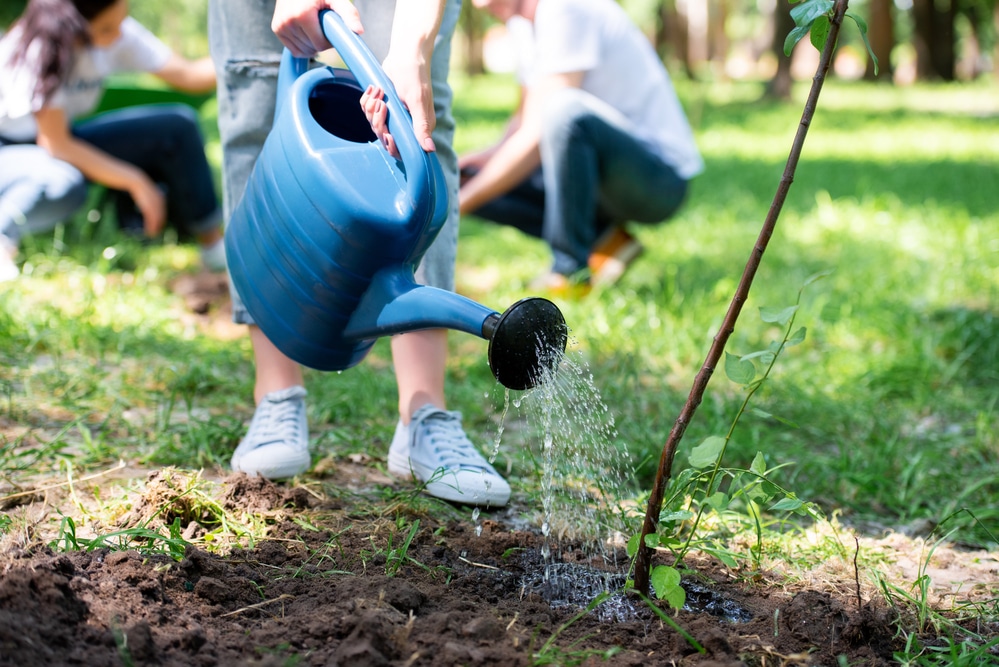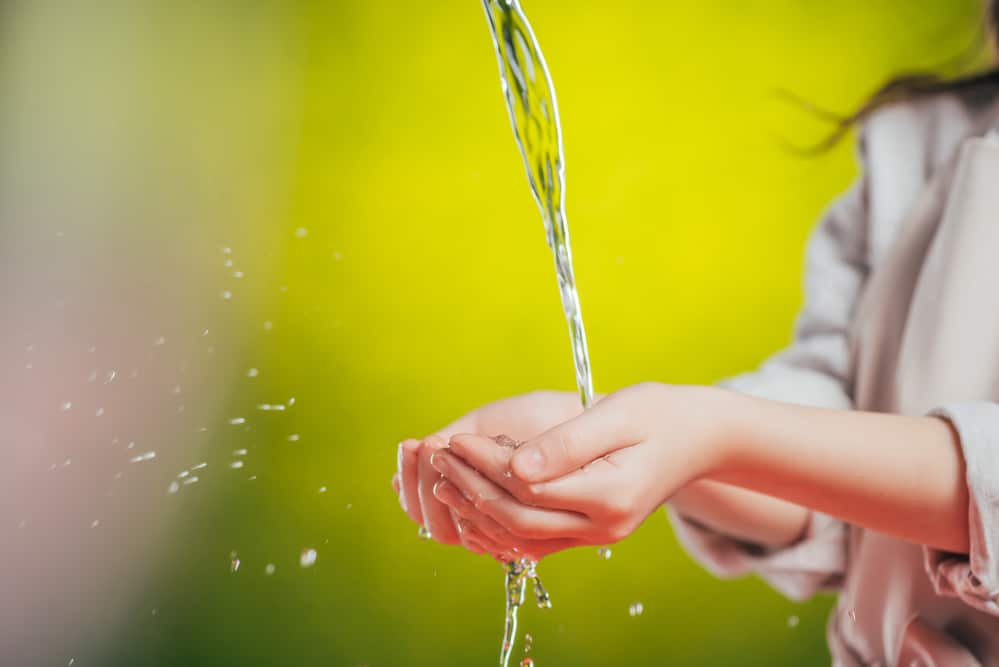Last Updated on
Although water softeners deliver a host of benefits to homes and families worldwide, many consumers are concerned about the impact these products might have on the planet. But are water softeners bad for the environment?
Creating softened water out of hard water comes with a cost, as it requires the use of electrical energy and water. If you’re planning on purchasing water-softening systems for your home, it’s worth understanding how these devices affect the environment and what you can do to make your household more eco-friendly.
Water Softener Issues: Salt and Chloride Build-up
There are a few reasons why water softeners can have a negative impact on the environment. The average water softening system uses a process called “ion exchange” to soften your water supply before pumping it through your plumbing. This process involves exchanging the ions in hard water, such as magnesium and calcium ions, with salt, or “sodium chloride”.
As water flows through your machine, the sodium chlorine ions bonded to the resin beads within your resin tank attract calcium and magnesium. The higher positive charge of the calcium and magnesium discharges the sodium ions, which flow in very small amounts into your tap water.
Though the sodium chloride level you’ll be exposed to in your softened water is minimal, it can impact the environment. This is because of the amount of wastewater you’ll create in your household. When wastewater passes out of your home and combines with the wastewater of various other households using ion exchange water softeners, it leads to a larger amount of sodium in our natural water reserves.
Notably, small amounts of sodium could be beneficial to the soil around your home, but high levels of sodium chloride can damage the ecosystem. Many animals and freshwater plants are sensitive to sodium chloride. Wastewater can also contaminate freshwater ecosystems, making it harder to preserve clean water throughout the planet.
Other Environmental Issues With Water Softeners
Aside from the threats created by your wastewater, there’s also another potential environmental issue to be aware of with water softeners. The average system needs to use large amounts of water to flush itself regularly, in a process known as a regeneration cycle. The standard ion exchange softener can use up to 10,000 gallons of water per year.
This can lead to a lot of waste for one of our planet’s most important resources. That’s why ensuring your water softener is properly maintained and serviced is essential. If your water softener is working correctly, it shouldn’t need to run a regeneration cycle too often, which means you can reduce the amount of excess water you use.
Additionally, systems that are appropriately calibrated will also use less salt and emit less sodium chloride into wastewater. Upgrading to a high-quality and environmentally-friendly water softener could be a good way to reduce your environmental impact.
Can Water Softeners Help the Environment?
So, are water softeners bad for the environment? They can be, but that’s not the full story.
Although some environmental issues are associated with using water softeners, it’s worth noting these products can sometimes be beneficial too. Water softeners don’t just make your tap water taste better or improve your showering experience. They can also help various other appliances in your home operate more efficiently.
Water softeners can reduce the risk of mineral buildup in your pipes and boiler systems, so the technology in your house doesn’t have to work as hard and consume as much electricity. Many people find using a water-softening system helps reduce their carbon footprint and their energy bills.
Water softeners can also make washing machines and dishwashers more effective too. Hard water can often make it difficult to clean your clothing on a regular cycle because stains and scratchy minerals are often left behind. This could mean you need to use your machine more frequently.
So, hard water makes cleaning your clothes and dishes more challenging, but it can also affect your appliances’ lifespan, as they may wear out faster than expected. This means you’ll need to invest in new technology more frequently. Since manufacturers use a lot of power and energy to create washing machines, dishwashers, and water heaters, this could mean your hard water system impacts the environment in another way.
Depending on your water hardness levels, a water softener could reduce your electricity bills, water consumption, and your need to replace your appliances regularly.
Can You Make Your Water Softener More Eco-Friendly?
Though concerns are rising about the impact water softeners might have on the environment, it’s important to remember they’re not always as problematic as they appear.
Many leading companies in the water-softening landscape have begun taking measures to reduce the environmental impact of their products. There are now intelligent systems available which can automatically reduce water and salt usage according to your specific water-softening needs.
Eco-friendly water softeners can learn a household’s water usage routine and use the optimal amount of water and salt in each cycle. This feature can reduce water consumption and make your system more efficient.
Upgrading to a high-quality water softener can also be a good way for homeowners to reduce their impact on their planet. The more advanced the system, the less you’ll need to run regular regeneration cycles and commit to a consistent cleaning routine which wastes additional energy and water.
Look for a highly energy-efficient system that uses environmentally friendly technology to significantly reduce the adverse effects of your water softener.
How to Soften Water and Be Environmentally Friendly
Outside of switching to a more energy-efficient and environmentally friendly water softening system, many homeowners can also consider other strategies to minimise the hard water minerals in their homes without harming the environment.

For instance, anti-scale magnetic treatment systems are a different type of water softener which pass water through a magnetic field to reduce the effects of hard minerals. Unfortunately, these products aren’t always very accessible.
You could also consider looking into an electronic descaler. This unique device wraps around your water pipe and sends electrical impulses into the water to help various minerals float away before they reach your plumbing system.
Alternatively, you might consider a salt-free water conditioning system. These products don’t remove the magnesium and calcium from your water. Instead, they pass water through a medium which causes the minerals to break down into smaller particles.
Can Water Softeners Harm the Environment?
So, to go back to our initial question, are water softeners bad for the environment? The answer is yes; these devices could harm our planet somehow. It’s worth noting, however, that there are various things you can do to reduce the environmental impact of your water softener. In some cases, using these products can be an excellent way to reduce your energy usage and improve your water supply. However, you’ll need to ensure you’re choosing the right water softener for your needs and maintaining it properly to get the most out of its technology.
Rebekah is a writer who loves to explore new products and find hacks that make life easier. She has a knack for all things home improvement, health and fitness. So you’ll often find her on Pinterest or browsing Houzz for ideas.
She’s always looking for the next thing to fix up around the house or what gadget might be just right for her lifestyle. Rebekah enjoys exploring new recipes, taking care of her family, and making sure she stays healthy with regular workouts at the gym.



